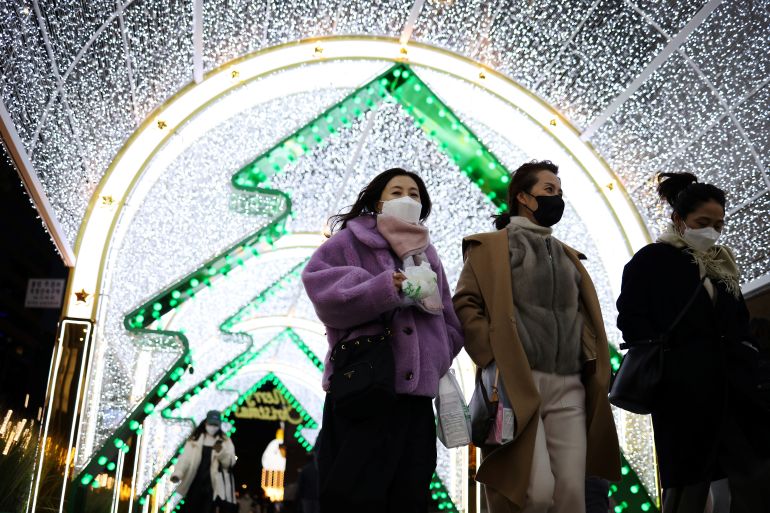South Korea extends business curfews as Omicron cases spike
Prime Minister Kim Boo-kyum says extension necessary to slow spread of Omicron after Lunar New Year celebrations.

South Korea extended COVID-19 social distancing rules on Friday for two weeks, including a 9pm curfew for restaurants, bars and gyms, amid soaring cases of the Omicron coronavirus variant.
Prime Minister Kim Boo-kyum said extending the restrictions, which were due to end on Sunday, was necessary to slow the spread of Omicron amid fears the Lunar New Year holiday, which ended on Wednesday, may have fuelled infections.
Keep reading
list of 4 itemsAs winter storm moves across US, ice becomes bigger concern
Myanmar’s Aung San Suu Kyi faces new charge amid fresh violence
North Korea’s Kim calls Winter Olympics ‘great victory’ for China
“Slowing the pace of the Omicron’s spread, which is heading to its peak day after day, is a priority in this difficult circumstance,” he said in a televised government response meeting.
New daily cases have tripled over the past two weeks, but the number of deaths and serious infections have remained relatively low in the highly vaccinated country.
South Korea reported a record daily increase of 27,443 new COVID-19 cases, with 24 new deaths, the Korea Disease Control and Prevention Agency said on Friday.
The extended curbs, which also include a six-person limit on private gatherings, spell more pain for businesses that have been forced to close early since December and endured numerous rounds of restrictions during the last two years.
Many small business owners say they have been forced to take on crippling debt to weather the restrictions and complained of inadequate support from the government.
While economies such as Germany and Japan have spent the equivalent of 15 percent of gross domestic product (GDP) on financial support in 2020, South Korea has only spent the equivalent of 6.4 percent of GDP, according to International Monetary Fund statistics.
Last month, more than 200 small businesses owners in Seoul publicly shaved their heads in protest of the government extending pandemic restrictions.
South Korea in January unveiled a 14 trillion won ($11.75bn) supplementary budget to support self-employed people and small businesses impacted by the latest extension of curbs.
Nearly 86 percent of the country’s 52 million population are fully vaccinated, with 53.8 percent having received booster shots.
To handle the surge in cases, the government has rolled out a new testing regime under which only priority groups take polymerase chain reaction (PCR) tests while others can get a rapid antigen test at a clinic for faster initial diagnosis.
It also reduced the mandatory quarantine time for vaccinated people who test positive from 10 days to a week, and allowed more people with few or no symptoms to be treated at home.
Overall, South Korea has reported 934,656 COVID-19 cases and 6,836 deaths since the pandemic began.